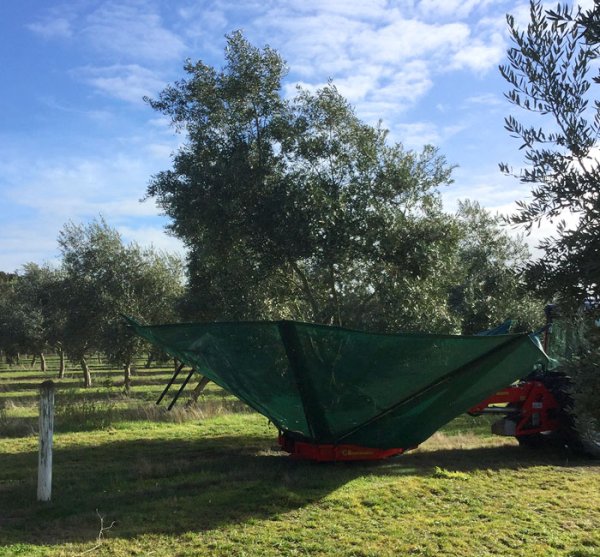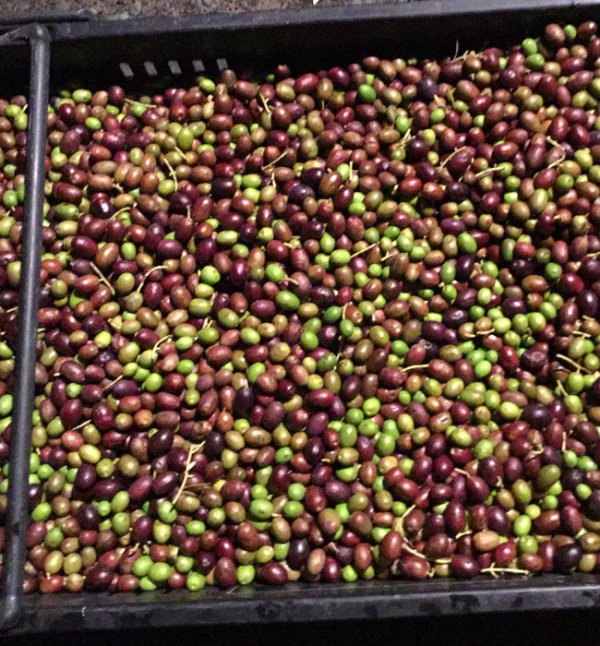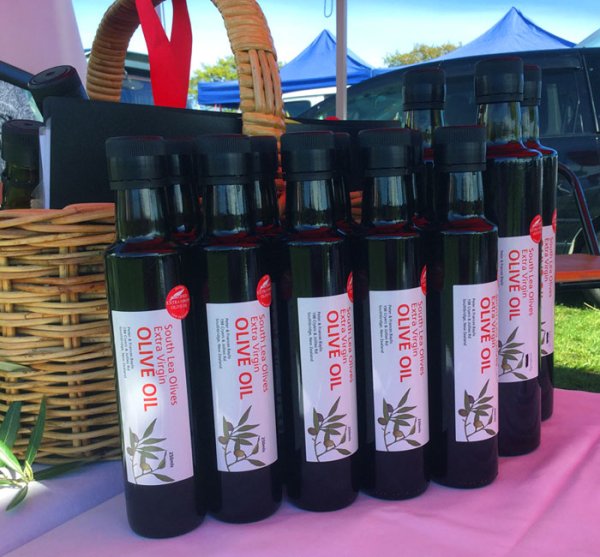When you think of olive oil, you may think of sunkissed Mediterranean hillsides and sprawling Italian estates. And sure, there’s a lot of good olive oil from that part of the world. But you can also think of Selwyn, because some of the best olive oil you could ever hope to taste is made right here, by Peter and Frances Baylis of South Lea Olives.
It’s fresher than something that has to come from the other side of the world, full of flavour, and you know exactly what you’re getting. Just pure extra virgin olive oil, grown in a grove near where the Rakaia River meets the sea.
Roots and beginnings
Peter and Frances bought the land back in 2005, heading back to the area in which Frances grew up. The property came with a large number of established olive trees, and they both enjoy being outside, so although they didn’t have a background in olive oil production… the next steps became inevitable. “We thought we’d just carry on with the olives, and we’ve been happy with it!” Peter says.
There’ve been challenges along the way. For one, as much as humans enjoy olive oil, birds may enjoy the actual olives even more. “You can go out in the grove and have a good look around and think you’ve got quite a reasonable crop,” Peter explains, “and by the time you’re ready to harvest next week, a lot of it’s gone with the birds!”
But they nevertheless produce a good supply of oil each year, which has earned them a number of accolades, and more importantly, a loyal customer following who appreciates both its flavour and health benefits.

The harvesting and pressing process
“What makes a good olive oil?” Peter says. “The right time to harvest,” Frances adds.
Each olive at South Lea is harvested with care, on a clear winter’s day in June. From there, the olives are pressed at a facility the couple own shares in. It’s a cold-press process, which means the temperature doesn’t exceed about 27 degrees. This ensures the oil isn’t degraded by heat.
All olive produced by South Lea is extra virgin olive oil. “Extra virgin is the very first press of the season,” Peter says, and South Lea only does one press per season.
But in New Zealand, Olives NZ also tests olive oils to make sure they meet the chemical standard of extra virgin olive oil. “We have that tested every year,” Frances says. “If it didn’t match up with those parameters, we couldn’t call it extra virgin. And we’re quite proud that it’s always extra virgin.”
The oil comes back to South Lea where it’s stored in stainless steel vats, to protect it from light and to ensure the flavour isn’t compromised. Peter and Frances then bottle it themselves in dark green bottles, which continue to keep the oil protected from the light.
Why choose a local olive oil?
Take a trip to the supermarket, and you’ll see olive oils from around the world lined up along the shelves. So why choose a local oil like South Lea?
For one, the carbon miles are fewer. But you can taste the quality, too.
“A lot of the [New Zealand] oils have gone over to New York awards and come back with gold,” Peter says. “New Zealand has been able to grow very good-quality olive oil.”
They explain that in some cases overseas, what’s left after the first press of the oils is repressed, with chemicals added to get more oil out. That’s not the case here, and it’s much easier to be confident you’re getting exactly what you’d expect from a quality olive oil.
Plus, there’s all the benefits that come from supporting local industry.
“At the farmers’ markets everybody loves that we’re local,” Frances says. “We’re not too far. We don’t travel a long, long way to get our products to them.”
Enjoying South Lea Olives Olive Oil
There are plenty of ways to enjoy South Lea Olives Olive Oil. “We have it on salads and on roasted Mediterranean vegetables,” Frances says. “I drizzle it on top of soup, a nice, thick, creamy soup."
Frances mentioned that they use it for all their baking instead of butter on their toast. When cooking salmon, they simply add a bit of olive oil and lemon juice and enjoy it with dukkah-dipped bread - the recipe sounds delicious!
Peter and Frances also agree that cooking asparagus in olive oil enhances its great flavour.
The couple share different ideas for using it with customers at farmers’ markets - and the regular customers often return with their own ideas. It's a positive cycle of fresh ideas from all sides, with customers frequently mentioning they'll try something new.

The Selwyn edge
Selwyn’s conditions are excellent for growing olives. The gentle winds allow the trees to be wind pollinated. The soil quality is favourable, and the temperatures are optimal.
The environment works not only for the olives, but for the people that grow them, too.
“We all like Canterbury because it has frosty mornings and we get a beautiful day,” Frances says. “It’s so peaceful. And we are really lucky in Selwyn."
Where to try South Lea Olives Olive Oil
The Baylis’ sell their oil through their website. You can also find it at their local Challenge petrol station in Leeston (just make sure you don’t confuse it with the other sorts of oil a petrol station might sell).
As with many Selwyn products, the South Lea makes a big splash in the wider world. You’ll find it at the Lyttelton and Mt. Pleasant Farmers’ Markets, and on the shelves at Frances Nation at the Christchurch Arts Centre.
